Fortinet certifications are highly sought-after credentials in the cybersecurity industry, validating expertise across a broad spectrum of network security solutions. From foundational knowledge to expert-level design and troubleshooting, Fortinet’s certification program offers a structured pathway for professionals to enhance their skills and career prospects. This guide will walk through the essential steps to achieve Fortinet certification, covering everything from understanding the different levels and their benefits to preparation strategies, exam logistics, and maintaining these valuable credentials.
To get Fortinet certified, individuals should choose a certification level (FCF, FCA, FCP, FCSS, or FCX) aligned with their career goals, prepare using official Fortinet Training Institute resources and hands-on labs, register and pass the required exams via Pearson VUE or ProctorU, and then maintain the certification through established recertification policies.
Embarking on a Fortinet certification journey can significantly boost professional standing in the dynamic field of cybersecurity. Before diving into the practical steps, it is important to understand the landscape of Fortinet certifications and why they are a valuable investment for a cybersecurity career.
Blog Claim: Fortinet certifications provide a clear, progressive pathway for cybersecurity professionals to validate their skills, gain industry recognition, and unlock significant career and earning opportunities in a rapidly evolving threat landscape.
Table of Contents
What Are Fortinet Certifications and Why Get One?
Fortinet offers a comprehensive cybersecurity certification program designed to validate technical knowledge and skills across its wide range of security products and solutions. Understanding the structure of this program is the first step toward choosing the right certification for career aspirations.
Fortinet’s certification program, the Network Security Expert (NSE) Certification Program, now features five levels: Fortinet Certified Fundamentals (FCF), Fortinet Certified Associate (FCA), Fortinet Certified Professional (FCP), Fortinet Certified Solution Specialist (FCSS), and Fortinet Certified Expert (FCX), each validating distinct levels of cybersecurity expertise and opening doors to diverse career opportunities.1
Fortinet has evolved its certification program to better align with current cybersecurity roles and technologies, transitioning from the previous NSE 1-8 designations to a more streamlined five-level structure: FCF, FCA, FCP, FCSS, and FCX.1 This strategic realignment ensures that the certifications remain highly relevant and valuable to both individuals and employers.3 This is not merely a change in nomenclature but a proactive adaptation to the rapidly evolving cybersecurity threat landscape and the emergence of specialized job roles, such as those in cloud security, OT security, and Secure Access Service Edge (SASE). The program’s design explicitly aims to support evolving technologies, address emerging cybersecurity roles, and incorporate feedback from the global community.1 This commitment from Fortinet to keep its training current enhances the long-term value and industry recognition of its certifications, making them a more impactful investment for professionals. It also indicates that Fortinet is actively responding to industry needs and adapting its training to fill critical skill gaps, particularly in areas like Security Operations, SASE, and Public Cloud Security, which are prominent in the new FCP and FCSS specializations.2
Fortinet Certification Levels Overview?
The program is designed to assess expertise from foundational knowledge to architect-level skills.1
- Fortinet Certified Fundamentals (FCF) in Cybersecurity: This certification validates mastery of technical skills and knowledge required for any entry-level cybersecurity job role.2 It covers the cyberthreat landscape and cybersecurity fundamentals.5 This level is recommended for entry-level cybersecurity professionals and anyone interested in a cybersecurity career.2 To achieve it, candidates must complete one core and one elective course, then pass the Fortinet Certified Fundamentals Cybersecurity exam.2
- Fortinet Certified Associate (FCA) in Cybersecurity: The FCA validates the ability to execute high-level operations on a FortiGate device, covering common FortiGate features.2 It is ideal for cybersecurity professionals needing to perform high-level configuration and monitoring tasks on FortiGate devices, and for network security administrators of small to medium-sized companies.2 Requirements include completing the FortiGate Operator course and passing the associated online exam, which is 60 minutes long and contains 35 multiple-choice questions.2
- Fortinet Certified Professional (FCP): This level validates the ability to secure networks and applications by deploying, managing, and monitoring Fortinet cybersecurity products, with a focus on day-to-day tasks.2 The FCP offers multiple specialization paths, including Network Security, Security Operations, and Public Cloud Security.2 It is intended for professionals requiring expertise to deploy, manage, and analyze Fortinet devices in their respective domains.2 Achieving FCP typically involves passing a core exam and one or two elective exams, depending on the chosen specialization.2 For example, the FCP – FortiGate 7.4 Administrator exam is 90 minutes long and consists of 50 multiple-choice questions.9
- Fortinet Certified Solution Specialist (FCSS): The FCSS validates the ability to design, administer, monitor, and troubleshoot Fortinet solutions for complex infrastructures.2 Specializations at this level include OT Security, Security Operations, Network Security, Secure Access Service Edge (SASE), and Public Cloud Security.2 This certification is recommended for professionals who require expertise in designing, managing, supporting, and analyzing advanced Fortinet solutions.2 Requirements vary by specialization, often necessitating a core exam and one or two elective exams.2 For instance, FCSS Network Security exams like NSE7_EFW-7.2 are 60 minutes long with 35 questions.11
- Fortinet Certified Expert (FCX) in Cybersecurity: As the highest level, the FCX designation recognizes comprehensive and expert knowledge in network security design, configuration, and troubleshooting for complex networks.2 It signifies a deep understanding of Fortinet’s security architectures and advanced threat prevention strategies.15 This certification is recommended for networking and security experts with extensive experience using Fortinet solutions in production environments, who are capable of solving complicated security problems.2 To achieve FCX, candidates must pass both a written exam (NSE 8 – Network Security Expert 8 Written Exam) and a practical, hands-on exam (NSE 8 – Network Security Expert 8 Practical Exam).2 The written exam is 120 minutes long with 60 questions 13, while the practical exam is a one-day, two-session evaluation (5 hours and 4 hours) involving hands-on configuration and troubleshooting.13 The FCX certification is not just about mastering a single product; it demonstrates comprehensive mastery of the entire Fortinet ecosystem and its application in complex, multi-product environments. The practical exam’s requirement to configure and validate a complete network topology involving multiple Fortinet products reinforces this holistic approach.13 This positions the FCX as a powerful career capstone, preparing individuals for architect and leadership roles where integrated solutions are paramount.
Career Benefits and Salary Potential?
Fortinet certifications are globally recognized and highly regarded, significantly improving employability and opening higher-level job positions.3 Organizations actively seek Fortinet-certified experts to manage their security solutions.3 Beyond technical validation, certifications enhance earning potential and career progression.3
Salary potential varies significantly based on the certification level and specific job role. A “Network Security Associate,” typically aligned with FCF/FCA levels, can earn around $85,000 per year.17 A “Network Security Professional,” often associated with FCP (specifically NSE 4), averages $97,000 per year.17 However, other data indicates an average of $50,041 per year for a “Fortinet NSE 4” role 18, highlighting variations due to region and specific job responsibilities. For a “Network Security Architect,” aligned with FCSS, the annual compensation can be around $110,000.17 The “Network Security Expert” (FCX) can command $130,000 per year 17, with some sources suggesting a range of $120,000 to over $200,000 annually.15 A “Fortinet Firewall” role, which likely requires FCP or FCSS level expertise, averages $112,302 per year.19 These figures underscore the financial incentive for pursuing Fortinet certifications.
Table: Fortinet Certification Levels Overview
| Certification Level | Purpose/Validation | Target Audience | Validity |
| FCF (Fundamentals) | Entry-level cybersecurity skills, threat landscape, fundamentals. | Aspiring cybersecurity professionals, non-technical roles needing security awareness. | 2 years |
| FCA (Associate) | High-level operations on FortiGate devices, common features. | Network security administrators (SMBs), professionals performing basic FortiGate administration. | 2 years |
| FCP (Professional) | Deploying, managing, monitoring Fortinet products for networks/applications (Security Operations, Network Security, Public Cloud Security). | Cybersecurity professionals deploying, managing, and analyzing Fortinet devices. | 2 years |
| FCSS (Solution Specialist) | Designing, administering, monitoring, troubleshooting advanced Fortinet solutions (OT, Security Operations, Network Security, SASE, Public Cloud). | Cybersecurity professionals requiring expertise in advanced Fortinet solution design and support. | 2 years |
| FCX (Expert) | Comprehensive, expert knowledge in network security design, configuration, and troubleshooting for complex networks. | Networking and security experts with extensive Fortinet product experience in complex environments. | 3 years |
Fortinet’s updated certification program (FCF, FCA, FCP, FCSS, FCX) offers a clear progression from foundational cybersecurity knowledge to expert-level solution design. These certifications are globally recognized, significantly enhancing employability and increasing earning potential for cybersecurity professionals.
How Do You Prepare for Fortinet Certification Exams?
Effective preparation is key to successfully earning Fortinet certification. Leveraging the right resources and adopting a structured study approach will maximize the chances of success, ensuring both theoretical knowledge and practical skills are gained.
Preparation for Fortinet certification exams involves utilizing the official Fortinet Training Institute’s self-paced e-learning and instructor-led courses, gaining hands-on experience through on-demand labs, and practicing with official sample questions and exam blueprints.
Fortinet provides a robust ecosystem of resources to support the certification journey, emphasizing both theoretical understanding and practical application.20
Leveraging Official Fortinet Training Institute Resources?
The Fortinet Training Institute is the primary source for preparation.1 Fortinet offers a wide range of self-paced courses, including pre-recorded lessons, online videos, and digital resources, which are generally available free of charge.2 These courses provide the foundational knowledge for each certification level. For those who prefer a structured, interactive learning environment, Fortinet and its Authorized Training Centers (ATCs) offer instructor-led classes, available both in-person and virtually.1 These sessions allow for direct engagement with subject matter experts and shared learning experiences with peers.2 Fortinet recommends following the specific NSE Learning Path for each certification, which outlines the recommended sequence of courses to build a strong foundation.20
Gaining Hands-On Experience with Labs?
Practical experience is paramount for mastering Fortinet solutions and is a critical component of the certification exams, especially at higher levels.3 While self-paced courses provide theoretical content for free, access to interactive, hands-on lab environments can be purchased separately.2 These labs allow individuals to apply theoretical knowledge and develop practical skills in a virtual environment, configuring and troubleshooting Fortinet products like FortiGate firewalls, FortiAnalyzer, and FortiClient.2
Fortinet’s model provides a low barrier to entry for theoretical knowledge through free courses, but it strategically monetizes the critical hands-on component necessary for true skill development and certification success. The industry’s demand for practical skills drives Fortinet’s pricing model, which encourages practical application. This means that while initial learning is free, achieving competence and certification often requires an investment in labs. On-demand labs are typically integrated into self-paced course pages once purchased, with a single launch per lab activity and a specific duration.21 It is crucial to note the estimated lab duration and ensure enough time to complete it, as access is limited.21 The cost for on-demand lab access can vary, with examples showing $150 for 1-day access 23 or $309.99 for 20 hours.24 This suggests different lab offerings or bundles, allowing candidates to choose based on their needs, but reinforcing that practical experience comes at a price. Therefore, candidates should budget for lab access as an essential part of their preparation, not an optional add-on. Relying solely on free theoretical content will likely be insufficient for passing the more advanced, practically-oriented exams (FCA, FCP, FCSS, and FCX). This also suggests that Fortinet is confident in the value of its lab environments, as they are positioned as a necessary step for certification.
Utilizing Official Documentation and Practice Materials?
For each certification, it is recommended to download and review the official exam blueprint or description.9 These documents provide a clear understanding of the key domains, topics, and objectives covered in the exam, helping to focus study efforts.20 Fortinet also provides official sample questions for many FCP-level exams.26 These questions represent the exam content in terms of question type and scope, helping to familiarize individuals with the format.9 While helpful, they are not exhaustive and should not be solely relied upon for readiness assessment.9 Pearson VUE, the primary exam delivery partner, offers a demo test to familiarize candidates with the online testing environment.1 While official resources are paramount, some third-party platforms (e.g., CertLibrary, NWExam, ITExams) offer practice exams and questions.26 These should be used with caution, prioritizing official materials.
The frequent updates to exam versions (e.g., FortiGate Administrator from 7.4 to 7.6) and the explicit “Available until” dates for some exams indicate a continuous evolution of Fortinet’s product features and the corresponding certification content.9 This is a direct consequence of the rapid pace of cybersecurity threats and technology development. The “upcoming enhancements” further solidify this trend.1 The implication for candidates is that they must pay close attention to the specific product versions associated with their chosen exam and ensure their study materials and lab environments are current. This dynamic nature means that study guides or older training materials can quickly become outdated. Candidates need to rely heavily on the most current official Fortinet Training Institute resources and exam descriptions to ensure their preparation is aligned with the latest exam objectives. This also highlights the importance of timely recertification, as discussed in the next section, to keep skills and credentials current with evolving technologies.
Successful Fortinet exam preparation relies on a multi-faceted approach, combining free official self-paced courses with paid hands-on lab access, thorough review of exam blueprints, and practice with official sample questions to build both theoretical knowledge and practical proficiency.
What Are the Costs and Logistics of Fortinet Exams?
Understanding the financial and logistical aspects of Fortinet certification exams is crucial for planning the certification journey. This section breaks down exam costs, registration procedures, and important policies to ensure a smooth certification process.
Fortinet exam costs typically range from $200 to $400 per exam, with the FCX practical exam costing $1600. Exams are registered and taken through Pearson VUE (or ProctorU for FCX practical), with a 15-day waiting period for retakes.
The cost of Fortinet certification exams varies by the level and type of certification, reflecting the depth of knowledge and practical skills being assessed.
Fortinet Exam Costs?
As of October 1st, 2023, Fortinet updated its exam voucher pricing.30 For certifications requiring one exam (e.g., many FCSS specializations like FCSS in Public Cloud Security, FCSS in OT Security, FCSS in Security Operations), the exam price is
$400 USD.30 For certifications requiring two exams (e.g., all FCP certifications, FCSS in Network Security, FCSS in Secure Access Service Edge), each exam costs
$200 USD, totaling $400 for the two exams.30 For the FCX certification, the written exam (NSE 8) costs
$400 USD 30, while the practical lab exam costs a significant
$1,600 USD.30
The high cost of the FCX practical exam is not merely a reflection of its complexity but a strategic pricing decision by Fortinet. This pricing is designed to position FCX as an exclusive, elite credential for true experts, similar to other high-level industry certifications. The financial barrier, combined with the rigorous practical assessment, ensures that only the most dedicated and skilled professionals pursue and achieve this certification, thereby enhancing the prestige and market value of the FCX designation. These prices are in USD and do not include tax.30 It is important to budget not only for exam fees but also for potential lab access, which can range from $150 for a day to $309.99 for 20 hours.23
Exam Registration and Logistics?
Fortinet primarily partners with Pearson VUE for delivering its FCP, FCSS, and FCX written exams.1 FCF and FCA training and testing are available directly from the Fortinet Training Institute.1 The FCX practical exam is proctored online through ProctorU.2
To register for an exam through Pearson VUE, individuals need to create an account or log in. Once logged in, the desired Fortinet exam can be scheduled.1 Exams can be taken at physical test centers or via OnVUE online proctoring.1 Test center exams can be rescheduled or canceled up to 24 hours before the appointment via the Pearson VUE account. OnVUE proctored exams should be canceled as soon as possible before the appointment time.1
A strict policy requires a 15-day waiting period between unsuccessful exam attempts.1 This waiting period is in place to prevent candidates from simply memorizing questions or attempting to “braindump” without truly understanding the material. It compels candidates to utilize the intervening 15 days for genuine review, remediation of weak areas, and deeper study, thereby influencing the quality of preparation. This policy encourages a more thorough, thoughtful approach to learning rather than rushed attempts, ultimately contributing to the integrity and credibility of Fortinet certifications. It ensures that certified individuals possess genuine knowledge and skills, benefiting both the individual’s reputation and an employer’s trust in the certification. It is also important to note that an exam version that has already been passed cannot be retaken.10
Before starting the exam, candidates must agree to a Non-Disclosure and Candidate Agreement. Failure to accept this agreement within the given time will result in forfeiture of exam fees.1 It is advisable to review this agreement beforehand.1 Exams are available in English, Japanese, and French, with some also available in Chinese.1 Fortinet partners with Credly to provide digital badges for all exam passes and certifications, which are valuable for showcasing credentials.1
Fortinet has announced important enhancements to its Certification Program scheduled for October 15, 2025.1 These updates are designed to support evolving technologies, address emerging cybersecurity roles, and incorporate feedback from the global community.1 Candidates should stay informed about these changes by visiting the official Fortinet Certification Program portal.
Table: Fortinet Exam Costs at a Glance
| Certification Type | Number of Exams | Cost per Exam (USD) | Total Cost (USD) | Exam Delivery Partner(s) |
| FCF (Fundamentals) | 1 (online) | Included with course | N/A (course free) | Fortinet Training Institute |
| FCA (Associate) | 1 (online) | Included with course | N/A (course free) | Fortinet Training Institute |
| FCP (Professional) | 2 | $200 | $400 | Pearson VUE |
| FCSS (Solution Specialist) | 1 or 2 | $200 or $400 | $200 – $400 | Pearson VUE |
| FCX (Expert) Written | 1 | $400 | $400 | Pearson VUE |
| FCX (Expert) Practical | 1 | $1,600 | $1,600 | ProctorU |
Fortinet certification exam costs range from $200-$400, with the FCX practical exam at $1600. Exams are primarily administered by Pearson VUE, require a 15-day waiting period for retakes, and candidates should be aware of upcoming program enhancements.
How Do You Maintain Your Fortinet Certification?
Fortinet certifications are not a one-time achievement; they require ongoing maintenance to remain active and reflect current expertise in a rapidly evolving cybersecurity landscape. Understanding the recertification policies is essential for long-term career planning.
Fortinet certifications are valid for two years (FCF, FCA, FCP, FCSS) or three years (FCX). Recertification can be achieved by completing specific courses, passing higher-level exams, or renewing the FCX certification, which automatically renews all lower-level active Fortinet certifications.
Maintaining Fortinet certification ensures skills remain current and credentials stay active, signaling ongoing expertise to employers. Fortinet has clear recertification policies that vary by certification level.33
Certification Validity Periods?
FCF, FCA, FCP, and FCSS certifications are active for two years from the date they are achieved.33 The FCX certification is active for
three years.33
Recertification Requirements by Level?
Fortinet encourages candidates to recertify before their certifications expire, sending reminders 90, 45, and 5 days prior to the expiration date.33
- Fortinet Certified Fundamentals (FCF): Recertification can be achieved by completing one core and one elective FCF course within two years, or by passing one FCA, FCP, or FCSS exam. Achieving or renewing the FCX certification also recertifies FCF, extending its validity by three years (other options extend by two years).33
- Fortinet Certified Associate (FCA): Options for recertification include completing one core FCA course (FortiGate Operator course) and passing the associated exam, passing one FCP exam, or passing one FCSS exam. Similar to FCF, achieving or renewing the FCX certification extends FCA validity by three years, while other options extend it by two years.33
- Fortinet Certified Professional (FCP): Recertification depends on the specific FCP certification. For FCP in Network Security and Public Cloud Security, individuals must complete the initial certification requirements (pass one core and one elective exam within two years). For FCP in Security Operations, two electives must be passed.33 Alternatively, passing one FCSS exam in the same career path (e.g., FCSS in Network Security for FCP in Network Security) will recertify FCP for two years.33 Achieving or renewing the FCX certification extends FCP certification by three years.33
- Fortinet Certified Solution Specialist (FCSS): Recertification requirements vary by FCSS specialization. For example, FCSS in Network Security requires passing one core and one elective exam; FCSS in Secure Access Service Edge requires passing two core exams; FCSS in Security Operations requires passing one elective exam; and all other FCSS certifications require passing one core exam.33 For all FCSS certifications, achieving or renewing the FCX certification extends the expiration date by three years.33
- Fortinet Certified Expert (FCX): To recertify, individuals must pass the FCX written exam (NSE 8) no earlier than six months before the current certification expires.13 A significant benefit of renewing FCX is that it automatically recertifies all other active Fortinet certifications, aligning their expiration dates with the new FCX expiration date.33 The FCX recertification extends the date by three years from theinitial expiration date, not the date of passing the recertification exam.33
Fortinet’s recertification policy actively encourages continuous learning and career progression. The need for professionals to constantly update their skills in cybersecurity is addressed by allowing higher-level certifications to renew lower-level ones. By pursuing a higher-level certification, individuals not only advance their expertise but also automatically satisfy the renewal requirements for their foundational credentials. This creates a “certification ladder” where progression naturally leads to maintenance. This intelligent design choice incentivizes ongoing engagement with the Fortinet ecosystem, meaning professionals do not need to repeatedly test on basic knowledge. Instead, their effort is rewarded by both upward mobility in their career path and streamlined maintenance of their entire certification portfolio. This reinforces the idea that Fortinet certifications are a long-term investment in professional development.
Important Notes on Recertification?
If a certification has expired, individuals must complete all the initial certification requirements again to regain active status.33 Once an exam has been counted towards initial certification, it cannot be used again to renew the
same certification.10 Fortinet does not provide extensions for certification expiration dates; candidates are responsible for recertifying on time.33
For those holding older NSE 1-7 certifications (prior to October 1, 2023), the validity was two years. NSE 1-3 were renewed by completing current course versions in the Fortinet Training Institute. NSE 4-7 could be renewed by taking a different exam or later versions of the same exam at Pearson VUE within six months of expiration. Achieving NSE 7 automatically recertified NSE 4, 5, and 6. NSE 8 (now FCX) had a three-year validity and its renewal automatically renewed all previously earned NSE certifications, even if expired.33 This historical context is important for understanding the program’s evolution and the benefits of the current streamlined structure.
Table: Fortinet Certification Recertification Requirements
| Certification Level | Validity Period | Primary Recertification Methods | Automatic Renewal by FCX? | Notes |
| FCF (Fundamentals) | 2 years | Complete core+elective FCF courses, OR pass FCA/FCP/FCSS exam. | Yes (3-year extension) | Completing FortiGate Operator course/exam also recertifies FCF. |
| FCA (Associate) | 2 years | Complete core FCA course+exam, OR pass FCP/FCSS exam. | Yes (3-year extension) | |
| FCP (Professional) | 2 years | Complete initial cert requirements, OR pass relevant FCSS exam. | Yes (3-year extension) | Exam used for initial cert cannot be used for same recertification. |
| FCSS (Solution Specialist) | 2 years | Varies by specialization (core/elective exams). | Yes (3-year extension) | |
| FCX (Expert) | 3 years | Pass FCX written exam (no earlier than 6 months before expiry). | N/A (is the highest) | Renews all other active Fortinet certs, aligning dates. |
Maintaining Fortinet certifications requires timely recertification every two or three years, achieved through various methods including completing courses or passing higher-level exams. The FCX certification offers the significant benefit of automatically renewing all lower-level active Fortinet credentials.
Conclusion
Obtaining Fortinet certification represents a significant investment in a cybersecurity professional’s career, offering a structured pathway from foundational knowledge to expert-level mastery. The program’s recent restructuring into FCF, FCA, FCP, FCSS, and FCX levels reflects Fortinet’s responsiveness to the evolving threat landscape and emerging job roles, ensuring that certified professionals possess highly relevant and in-demand skills. This strategic adaptation enhances the long-term value and industry recognition of Fortinet credentials.
Success in Fortinet certification is deeply rooted in practical application. The emphasis on hands-on experience through purchasable labs, complementing free theoretical e-learning, underscores the industry’s demand for professionals who can translate knowledge into action. This approach not only builds technical proficiency but also bolsters the credibility of Fortinet certifications in the job market, as employers seek individuals who can immediately contribute to complex security challenges.
The financial commitment for Fortinet exams, particularly the substantial cost of the FCX practical exam, positions the FCX as an elite credential, reinforcing its prestige and ensuring that only the most dedicated and skilled individuals attain this highest level of expertise. Furthermore, the 15-day retake policy for exams encourages thorough preparation and genuine understanding, contributing to the overall integrity of the certification program.
Maintaining Fortinet certifications is an ongoing process, with validity periods of two or three years. The recertification policies are designed to encourage continuous learning and career progression, notably through the “certification ladder” effect where achieving or renewing higher-level certifications, especially the FCX, automatically renews lower-level credentials. This streamlined maintenance process incentivizes professionals to deepen their expertise within the Fortinet ecosystem, ensuring their skills remain current and their credentials active in a dynamic industry.
In summary, Fortinet certifications offer a clear, progressive, and highly valued path for cybersecurity professionals. By understanding the program’s structure, committing to comprehensive preparation including essential hands-on labs, navigating the logistical and financial aspects of exams, and adhering to recertification policies, individuals can significantly enhance their employability, earning potential, and overall standing in the cybersecurity domain.
External links recomendation
- (https://training.fortinet.com/)
- (https://www.pearsonvue.com/us/en/fortinet.html)
- (https://www.fortinet.com/training-certification)
- (https://helpdesk.training.fortinet.com/support/solutions/articles/73000618563-exam-voucher-pricing-for-nse-certifications)
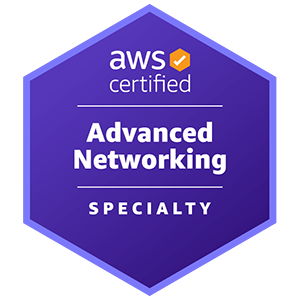
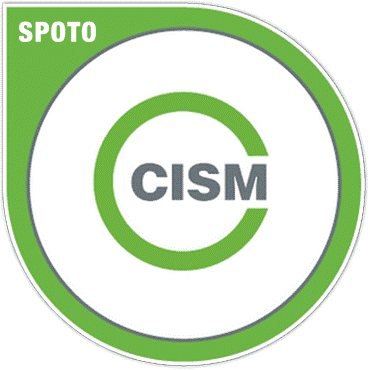

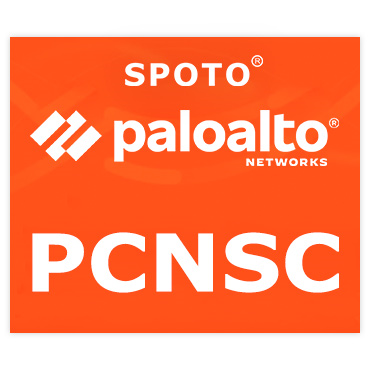
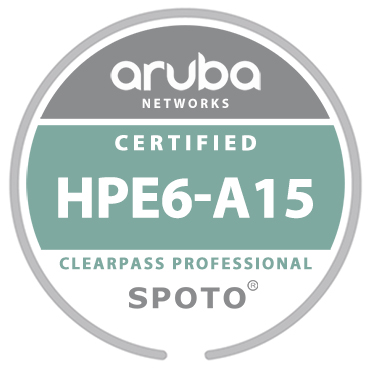
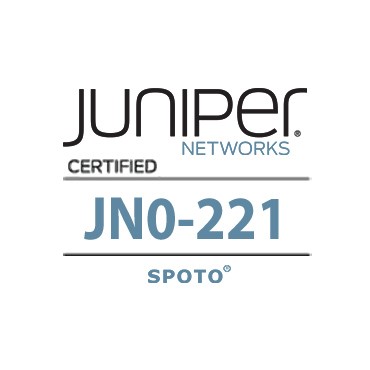
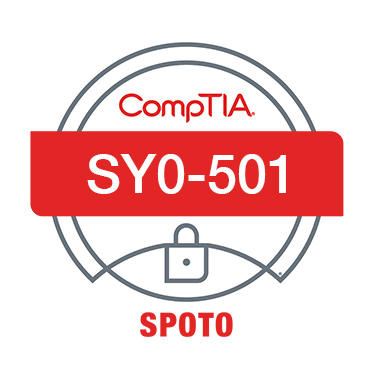
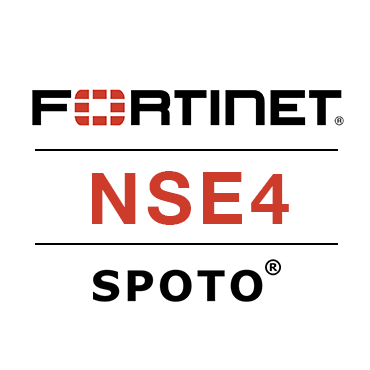
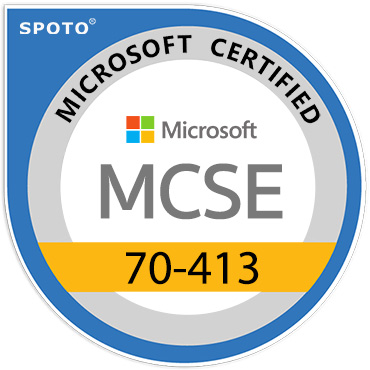
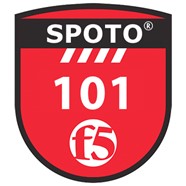
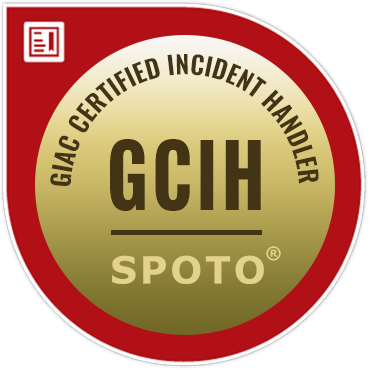

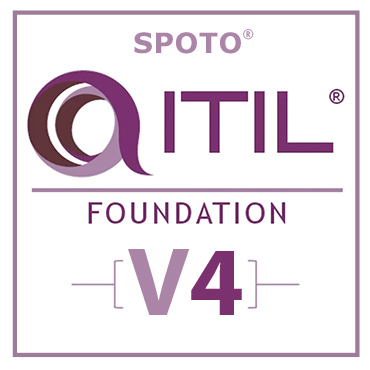
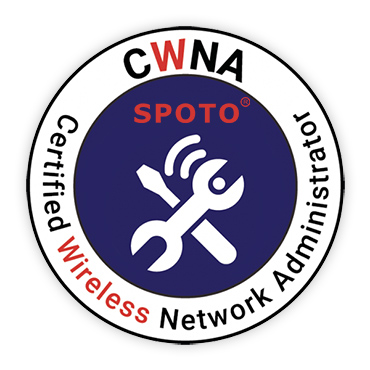
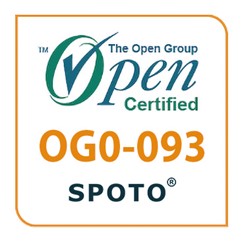



Comments